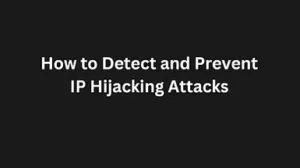Affordable IP intelligence helps startups identify opportunities, reduce risk, differentiate products, attract investors and advance globally.
Table of Contents
ToggleKey points:
Telenor offloads 50% stake in Allente to Viaplay for $113 million
Shift reflects telcos’ growing focus on core network and broadband services
What is affordable IP intelligence for startups?
Budget-friendly IP analysis tools provide affordable patent and trademark data services for startups. The tools provide affordable patent searches, trademark checks and market analysis. Startups analyze competitor technologies, follow sector developments and find new innovation areas. These findings improve research planning, prevent legal issues and reveal partnership options.
Unlike costly IP audits, these solutions provide practical strategic value at lower prices. The approach makes IP strategy manageable for startups with limited resources while helping them avoid expensive mistakes. The focus is on delivering actionable intelligence rather than complex legal analysis. These services bridge the gap between professional IP research and what startups can realistically afford.
Why IP intelligence matters for startups
IP intelligence helps startups track industry patents and trademarks while comparing their own assets. It identifies market opportunities, analyzes competitors, and detects copycat products. This gives startups data to make strategic decisions without expensive legal services.
Key benefits include:
– Monitoring industry IP activity
– Benchmarking against competitors
– Spotting infringement risks
– Guiding product development
– Supporting funding discussions
This approach makes professional-grade IP strategy accessible to startups with limited budgets.
Affordable IP Solutions for Startups
Patent Search Tools
Specialized software helps find patent information and shows filing patterns across industries. These systems identify competing technologies and reveal connections between inventions. Many providers give free access to basic features or offer special startup deals.
IP Management Systems
Automated platforms track intellectual property assets with easy-to-use displays. These tools send updates when important changes occur and adjust pricing as business needs grow. IPZEN represents this type of solution.
Automated IP Reviews
Technology companies now use artificial intelligence to examine patents at reduced prices. These services evaluate potential risks and check legal details while charging less than conventional law firms.
IP Rental Options
New businesses can pay to use existing patents rather than create their own. This approach saves money prevents long contracts and allows quick business expansion.
Additional Cost-Saving Options:
1. Government Patent Databases
National and international patent offices maintain free search systems with millions of patent documents.
2. Online Legal Help
Web-based services connect startups with IP experts for single-question answers or document reviews.
3. Standard Contract Forms
Pre-written legal agreements for common situations reduce paperwork expenses.
4. University Tech Programs
Many schools help startups use campus-developed technologies through special licensing plans.
5. Digital Record Keeping
Secure online services timestamp and store invention records for future patent applications.
6. Industry Training
Business groups frequently organize free workshops about intellectual property basics.
7. Shared Patent Pools
Some organizations let multiple companies use the same patented technologies.
Market research and competitive edge with IP intelligence
IP intelligence helps startups identify innovation opportunities by analyzing patent trends and technology developments.Patent analysis identifies underserved market opportunities with high growth potential. Biotech and AI firms utilize this data to monitor leading researchers, technological developments and collaboration prospects.
Enhancing investment
Patent-protected startups achieve 6.4x greater VC funding success compared to unprotected peers. Trademarked ventures demonstrate 4.3x increased investor attraction rates.Combining both protections further improves fundraising success.
IP ownership significantly increases valuation. Patent-holding startups average $38.7 million valuations compared to $7.7 million for unprotected competitors. As IP attorney Kevin Keener notes, strong portfolios enhance investor perception of stability and uniqueness.
Budget-friendly IP tools enable startups to develop strategic protections cost-effectively. These platforms monitor competitor activity, evaluate market developments and pinpoint valuable innovations. Startups leverage these findings to allocate resources effectively, obtaining essential safeguards without excessive spending.
Key Data Points:
Patents → 6.4× higher VC attraction
Trademarks → 4.3× investment increase
Patent valuation premium: $38.7M vs $7.7M
Practical Applications:
Competitor activity monitoring
Cost-effective patent screening
Trademark conflict detection
High-value innovation prioritization
Investor presentation strengthening
Risk and avoiding IP threats
Startups face serious risks when not tracking IP activity. Early warnings enable quick responses like legal notices or product modifications.
These tools also track competitor patent filings and research directions. This intelligence helps startups adjust their strategies faster than competitors. Many affordable platforms now include automatic alerts and visual risk indicators.
Key Protection Benefits:
Identifies trademark conflicts before launch
Detects domain squatters early
Reveals patent infringement risks
Tracks competitor R&D directions
Provides visual risk scoring
Scaling IP strategies internationally
Startups use affordable IP tools to plan worldwide expansion. These systems analyze patent and trademark data across countries, helping identify optimal markets for protection. International treaties like the Madrid Protocol and PCT become more valuable when supported by clear market data.
Global IP visibility improves licensing deals and partnership opportunities. Knowing exactly what patents exist in each country makes investors more comfortable with cross-border operations. This data helps negotiate better terms and avoid legal conflicts abroad.
Combining IP types: patents, trademarks and trade secrets
Startups should select IP protections matching their business focus. IP intelligence tools help determine priority protections. Affordable analytics platforms reveal competitor IP strategies for benchmarking.
Case studies: real startup wins
An AI startup analyzed patent data and discovered untapped technology areas. They filed a provisional patent in this niche space which generated investor attention and future licensing opportunities.
A biotech company tracked global research patterns through IP analytics. They identified neglected treatment applications and formed university partnerships in emerging markets.
Key Outcomes:
AI startup secured early-stage investment
Biotech team accessed new research collaborations
Both companies found market opportunities others missed
Minimal costs generated significant business value
These examples show how startups use basic IP tools to make strategic decisions. The right data helps identify high-potential areas before competitors notice. Even simple analysis can reveal valuable opportunities when applied strategically.
Best practice tips for startups using affordable IP intelligence
Start with an IP audit to list inventions, brands and creative assets. Then use tools to identify what to protect first based on value and risk.
Use freemium or startup-discount tools to search patent and trademark databases. Blend this with inexpensive monitoring platforms.
Consult with an IP lawyer when filing patents or drafting licences—but first gather intelligence to frame the ask.
FAQs
1. What exactly is IP intelligence?
IP intelligence is the process of collecting and analysing data from patents, trademarks, designs and other IP filings to gain insights on innovation, competition and market gaps.
2. How is IP intelligence different from protection?
IP intelligence provides market insights while protection involves legal filings. Intelligence helps determine what to protect.
3. Do small startups need expensive legal fees to get benefits?
No. Affordable tools and freemium platforms offer dashboards and alerts. AI-based audit tools and IP leasing models let startups handle planning cost-effectively before hiring lawyers.
4. Can IP intelligence help attract investors?
Yes. Investors view startups with strong IP strategy and evidence of strategic planning more favourably.
5. Is IP intelligence important for global growth?
Yes. Tracking global filings identifies key markets for protection and growth.




